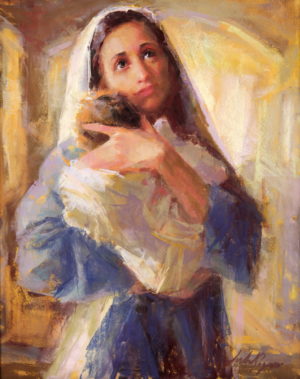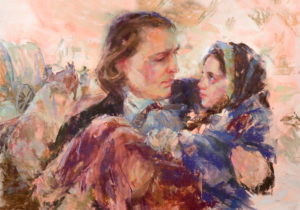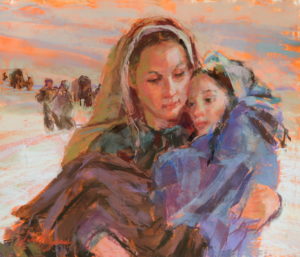Describing the events of the 26th of November 1856, John Jacques of the Martin Handcart Company wrote:
“The next camp . . . was in a small canyon running out of the north side of Echo canyon, a few miles above the mouth of the latter. Here a birth took place, and one of the relief party generously contributed part of his under linen to clothe the little stranger. The mother [Sarah Squires] did quite as well as could have been expected, considering the unpropitious circumstances. So did the father, who subsequently became a prosperous merchant of this city. The little newcomer also did well, and was named Echo, in honor of the place of her nativity. She is still a resident of the territory, is a happy wife and mother, and lives in the north country.”
Robert T. Burton was the clerk of the first rescue party sent out from Salt Lake City to find the late immigrating companies. He was also a trusted assistant to Captain George D. Grant. Robert kept a meticulous record of the distribution of supplies, except when he literally gave the shirt off his own back to little newborn Echo Squires. This event was described in later years by his granddaughter, Lenore Gunderson:
“After he had distributed all the clothing, Robert noticed a mother whose newborn baby did not have sufficient clothing to keep it warm, so he took off his own homespun shirt and gave it to the mother to cover the baby.”
In sacrificing his own warmth for the comfort of the new baby, Robert exemplified the way he continued to live throughout his life. Among his final words of advice to his children before his death in 1907 was the admonition to “be kind to the poor.” Leading men of Utah who spoke at his funeral articulated Robert’s character in these words and phrases: “genial; charitable; a general in the army of right, in the army of truth and of love; integrity; love; honor; years filled with good works; tender-hearted; sympathetic; worthy of confidence; never false to God, to himself or to his fellow-man, friend or foe.”





